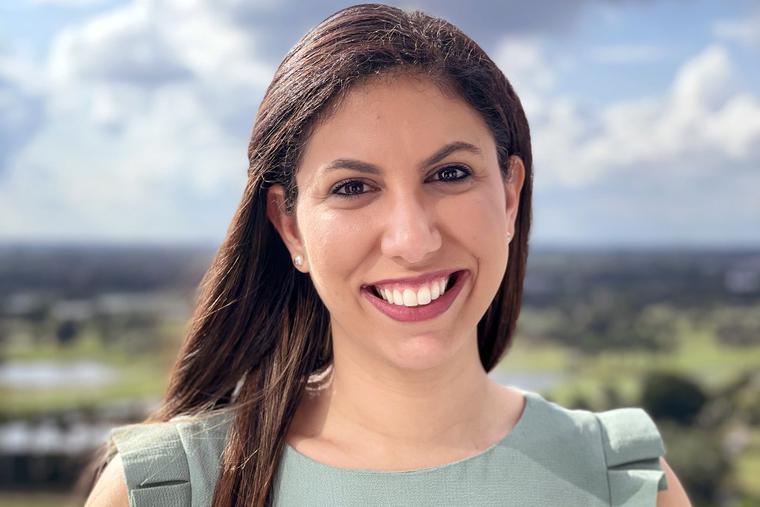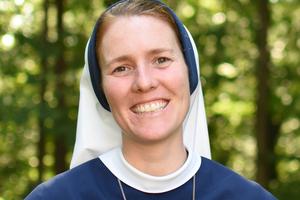OneLife LA Speaker: ‘Live Pro-Life on a Daily Basis’
Miami high-school theology teacher and campus minister will speak this weekend

When Mari Pablo walks into a restaurant, she asks her server’s name.
She describes the typical reaction as being “beautiful and heartbreaking at the same time” — beautiful because the other person is usually touched; heartbreaking because they’re inevitably caught off-guard, having gone all day without being addressed personally.
For Pablo, this type of interaction is a concrete way of being pro-life. “I’m very, very, very specific, looking them in the eyes and just acknowledging them,” she told the Register. “That small action recognizes the dignity in the other person.”
Pablo, a high-school theology teacher and campus minister in Miami, has traveled the United States and Latin America to speak about Christ and the Catholic faith. A speaker at this year’s OneLifeLA, “an annual event that promotes the beauty and dignity of every human life from conception to natural death,” on Jan. 22, Pablo uses her background in theology and psychology to shape her message.
Pablo strives to communicate both intellectually and affectively and to teach listeners to do the same. She loves the fact that Catholicism “makes sense on all levels. And the more that [people] see that it makes sense on all levels, the more that they’re going to understand it and apply it. But if someone’s saying that they’re pro-life, and they don’t know how to treat their neighbor, they’re not pro-life. I see that disconnect a little too often.”
Presenting the Church’s Position to Youth
Having taught morality and sacraments for eight years, Pablo strongly believes in walking “pro-choice” students through the reasons for their stance. She wants to understand their thought processes thoroughly before presenting the Church’s position. And when it is time for the latter, it is critical to communicate “the full picture of faith and science and psychology and all the things,” because “then they’re so much more open to understanding why abortion is wrong; and then once they understand it, then they can become advocates for [the pro-life cause].”
Pablo feels that connecting with young people is critically important, and she argues against thinking about them as “the ‘Church of Tomorrow.’” Rather, youth comprise “the Church now! And they can do incredible things right now; and no matter the age, they can make a difference.”
Still, focusing on grim, hot-button issues can be emotionally difficult. It is possible to become overwhelmed by the heaviness of the task, which, for Pablo, has included encountering people who have had abortions and students whose fathers were on death row. The very intimacy of such experiences, however, helps counteract the stress: “I think in understanding all sides, you can love, and that [difficult] conversation can be coming from a place of ‘I want what’s best for you. And if we don’t agree, that’s okay — but I’ll still love you and want what’s best for you.’”
Not surprisingly, for someone who stresses both the intellect and the heart, Pablo finds herself drawing on the Church’s intellectual tradition and its traditional piety.
Saintly Influences
“One of my main influencers is, I think, the main one for a lot of people in my generation: John Paul II. Understanding his teachings on the theology of the body helps encapsulate on a deeper scale for me [what it is to be] pro-life. It opened up my eyes to see it in a whole new way.”
Pablo also gravitates toward a trio of female saints: St. Margaret Mary Alacoque, St. Faustina and St. Teresa of Avila. The three of them, her “main girls,” embody an understanding of Divine Love encapsulated in devotion to the Sacred Heart of Jesus and the Divine Mercy. Those devotions have profoundly affected Pablo’s evangelizing. Understanding them entails treating everyone with calm respect, even in the course of what could become a heated argument, and “recognizing that even if people have [made] mistakes, and haven’t been very pro-life with their actions, they’re still called to the heart of the Lord.”
For Pablo, this personal approach, like the way she handles interactions when ordering lunch, is all part of being pro-life. Daily life and the big issues fit together in her mind, and anyone who sincerely believes in being pro-life will, she argues, be living that belief, too.
Pablo stresses how “all of this begins with how you treat and love yourself and how you treat and love your neighbor. And if you can do that [well], then that’s what it means to live pro-life on a daily basis.”
- Keywords:
- onelife la
- pro-life














